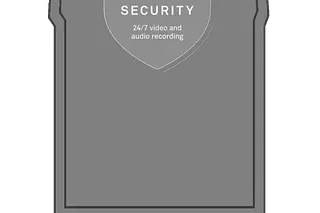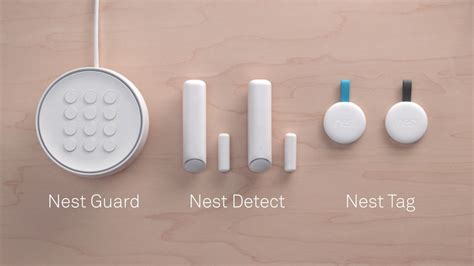Goodbye Nest Secure, Hello Zigbee
The dangers of buying into a closed ecosystem

When I bought my house a few years ago, after renting for several, one of the things I most looked forward to was finally installing “smart home” connected devices. I didn’t want to go overboard and automate every single little light bulb or electrical outlet, but some key connected devices were on the list: a thermostat that can learn my habits and help me save energy, smoke alarms that can give me peace of mind that my house wasn’t on fire (with pets inside) while I was away, a doorbell camera so that I may know who was at my door at any time, and — since I wasn’t yet sure how trustworthy the neighborhood was — a security system.
Nest was the obvious choice for me. They already sold all the devices I needed and were all fairly well reviewed. That they were owned by Google, a company that I was a pretty big fan of at the time, was just icing on the cake. The devices were not cheap, but they were all quality devices that seemed worth the cost, particularly if they lasted as long as I intended them to be in service (forever). This last point was a key rationalization of my investment; I didn’t want to cycle through security systems as often as a cell phone. Nest devices promised to give me just that. They even had third-party integrations, aka Works with Nest, that would work with everything from door locks to pet feeders to garden watering systems, just in case I decided that I did want to go overboard with automation.
I didn’t want to cycle through security systems as often as a cell phone
Looking back, I ignored a lot of information that I already had. By the time I was comparing devices, Google already had a track record of shutting down useful services, such as Inbox and Google Reader. They had also already bought Motorola Mobility, mostly for its patents, then sold it off to Lenovo, putting America’s major Android smartphone company (at the time) under foreign control. It was already clear that Google did not have a safe hardware ecosystem to buy into, but Nest was still operating semi-independently from Google, so it was easy to ignore the red flags.
It was not surprising, then, when Google started expanding its Google Home app and started forcing Nest accounts to migrate - killing new Works with Nest integrations in the process. Disappointing, sure, but it tracked. I never used any third party integrations anyway.
Then, in October of 2020, I received this email from Google:
We’re reaching out to give you an update on your Nest Secure alarm system. We sold out of Nest Secure and won’t be making the full system available for sale any longer. We are committed to bringing you the same feature and software support you’ve always had with Nest Secure, including existing cross-product integrations within the Nest ecosystem. We will also continue to deliver critical security updates and software fixes. You shouldn’t notice any change with your Nest Secure experience.
With this discontinuation of sales, alarm bells started ringing (no pun intended… ok maybe a little bit intended). Regardless of what Google claimed, the writing was on the wall — Nest Secure was on life support.

This past April, Google announced that the Nest Secure would officially become unsupported in April of 2024, rendering them into $500 paperweights. To their credit, they did include with this announcement some generous Play Store credits or a new ADT security system.
Also announced this year: price increases for the Nest Aware subscriptions, used by the doorbell to store footage and identify subjects such as humans or packages.
That bring us to the present. I’m ready to ditch Nest. I will keep the thermostat and smoke detectors, which still work fine (for now), but I’ve learned an expensive lesson: if you don’t control it, you don’t own it. Since I already have Ubiquiti Unifi networking gear (hey, I never claimed to be anything other than a tech nerd), I’m replacing the Nest doorbell with a Ubiquiti one that operates on my local network, saving to a physical disk. For a security system, I’m building out a custom solution based on Home Assistant running on my local network and Zigbee sensors. Zigbee devices, besides being an open standard designed for IoT, also tend to be very cheap compared to wifi and Bluetooth based devices.
I intend to write more about the technical setup and challenges of the new devices as I get them installed and configured. The doorbell should be easy enough to intall and configure, but setting up an alarm system with Home Assistant will be more challenging.


